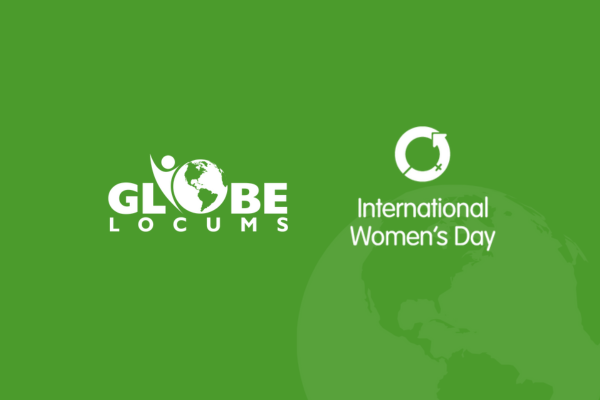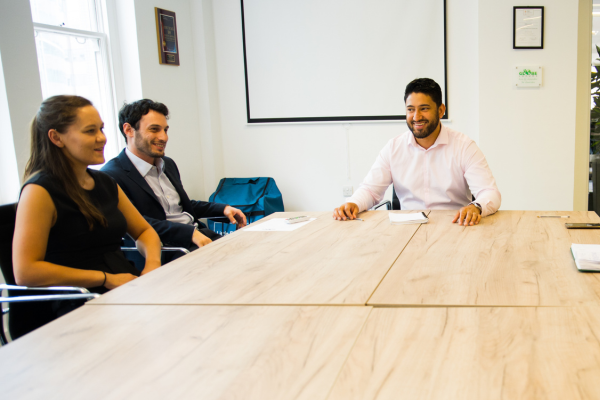How to prepare for an interview for a graduate recruitment role

If you're applying for a graduate recruitment role, then chances are that you'll be invited to an initial telephone interview, a face-to-face interview, a group interview, or possibly all three. Preparation for the interview stage is key because it’s your chance to show the employer that you’re the best candidate for the job. Going in prepared gives you more confidence, which means you’ll be in a better position to showcase your skills and talents during the interview. In this article, we’ll learn how to prepare for your face-to-face interview for a graduate recruitment role.
Be on time for your interview
Showing up on time is one of the most important things you can do. If you're running late, call the interviewer and let them know. They won't be annoyed if you let them know well in advance. Sometimes things happen, but if you going to be more than 15 minutes late, it's best to look to rearrange your interview altogether.
It's important to be conscientious of other people's time—especially when they have given up theirs. Moreover, your timekeeping ability will reflect how you approach work generally, if you turn up late, you may give off the impression that you would turn up to work late, meetings or calls late, and that will reflect badly on your manager and the company as a whole.
To avoid this, look up how to get to your interview destination once it’s confirmed, so you have plenty of time to plan your journey. There are loads of sites like TFL Journey Planner, Citymapper and Uber, which are all designed to make your journeys easier (so you should have no excuse for being late!).
Know about the company
If you’re going to be interviewing for a graduate recruitment role, it’s important that you know about the company. This means researching what they do, their company values and what they expect from you in your role.
Many candidates don't take this seriously enough, but if you want to stand out from the crowd and impress your interviewer, then it's essential that they can see how much research you've done on them.
You should be able to find some information about the company before your interview so that you're prepared for any questions they may ask about themselves or their culture. You can usually find this on their website and LinkedIn profiles. It's also worth searching Google for any press coverage of them or videos featuring their employees talking about what makes them special as an employer. Glassdoor also provides a great insight into what it’s like to work at a company.
Prepare for common interview questions
There are many books on ‘how to interview’ and there are therefore even more textbook interview questions. These will vary from questions about you, your experience and your strengths and weaknesses, to about the role itself and why you want to work there.
Do some research and create a list of interview questions you think you’ll encounter, then prepare your answers so you’re ready to go when asked. Just make sure that you don’t just pick the questions you would want to be asked – remember that the interviewer might want to see if you’re up for a challenge, especially in a career like recruitment!
Approach your interview as you would a conversation
It's important to approach your interview as a conversation, rather than a test of knowledge. You're not being tested on which company you know best; instead, you're being asked to prove that you're the right fit for the role. And recruitment is a social career – you need to be able to communicate and get on with people well.
To do this, it's vital that you are true to yourself and confident in who you are. Be polite and attentive—and enthusiastic! Remember that they want someone who will be a good addition to their team, so demonstrate how well-suited you are by demonstrating your genuine enthusiasm for the position in question.
Remember to listen
The interview process is a two-way street. You should also be listening to your interviewer, who will give you cues as to how well you're doing. If they're not asking questions, they may be bored and uninterested in what you have to say—or they may even be making notes about your performance. So don't just think about what answers to give; also think about what questions they might ask, and how those might relate back to your own experiences and skill set.
Make sure to put away any distractions during this time (e.g., phones) so that both parties can focus on getting through the interview in an efficient manner.
Ask questions
An interview is a time to ask questions. It’s important to have a list of questions prepared in advance so you can think about the answers and formulate further questions based on what you learn.
- Ask about the company culture, and how it differs from other companies where you've worked or studied.
- Ask about what is expected of you in this role, and whether there are any additional responsibilities that may be part of your job down the road.
- Ask about training opportunities, or what support will be available at work if needed.
- Ask about development plans for your own career trajectory within this company (or at another company).
Have an elevator pitch
An elevator pitch is a short description of you and your skills that can be delivered in the time it takes to travel between two floors in an elevator. It’s a good way for employers to get a sense of your personality, interests, and accomplishments without having to spend too much time with you.
Prepare for your interview by brainstorming possible questions that could be asked. If there are any topics or skills relevant to the job description but not covered in this guide, feel free to add them as well! Then write down brief answers for each one on paper or index cards so that you can practise them when it's time for the interview. Remember: practice makes perfect!
Think about your body language
Be mindful of your body language during the interview, as this can act as an indication of how you’re feeling. Below are a few tips to ensure your body language isn’t giving interviewers the wrong impression:
- Posture is important: Don't cross your arms - this can give the impression that you're closed off, and that can be a problem when you're trying to make a good first impression. Instead, try sitting up with your back straight and your hands resting gently on top of each other or clasped in front of you. This will show that you’re calm and positive.
- Maintain normal eye contact: Avoid looking at the floor when answering questions. Look at the interviewer directly in the eyes whenever possible, because this will show them that they've got your full attention!
Eliminate the stress with the right mindset
Job interviews are stressful. You're in front of your future employer, trying to sell yourself as the perfect candidate for the job. If a job interview is your first encounter with this person (or group), it can feel intimidating and overwhelming.
However, with some preparation and the right mindset, you'll be able to handle any interview situation with confidence!
Conclusion
The more prepared you are for your interview, the better your chances of getting the job. You should think about the job requirements and what they will ask you in an interview. Also, make sure to research the company before going into this meeting because it will help you understand its culture or philosophy.
If you’re looking for graduate opportunities, contact us today at Globe Locums.
Photo by Christina @ wocintechchat.com on Unsplash

Work at Globe Locums
Want to find out more about life at Globe Locums? Why not read some articles on the subject? From interviews with our recruiters to what makes Globe Locums different.





